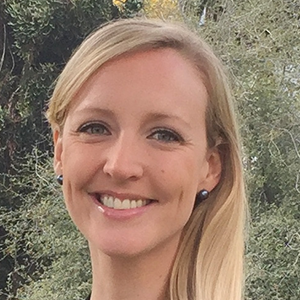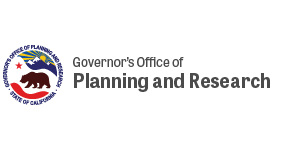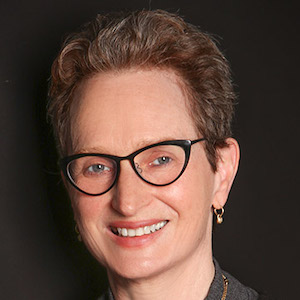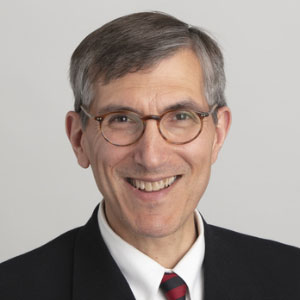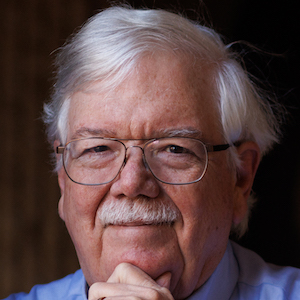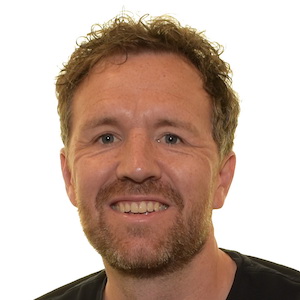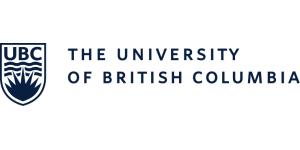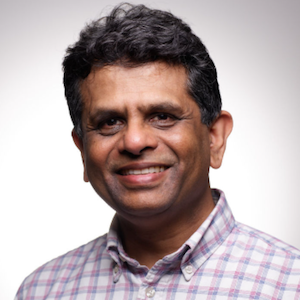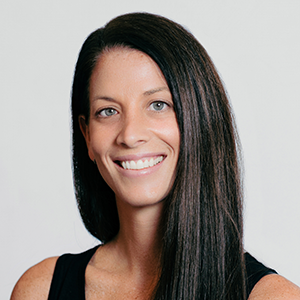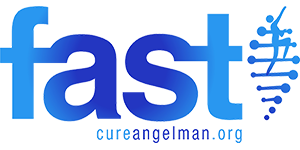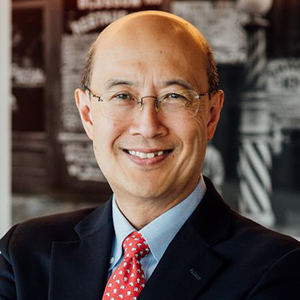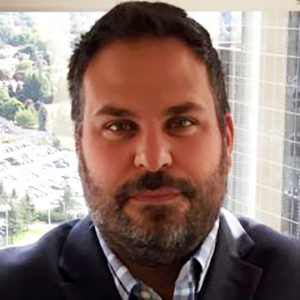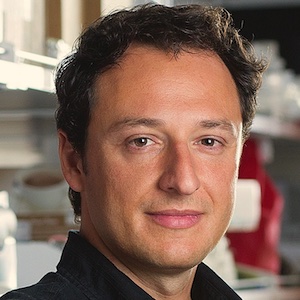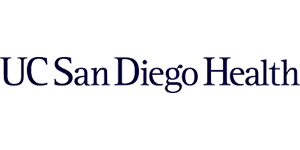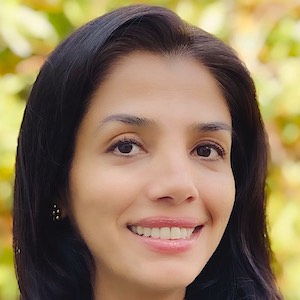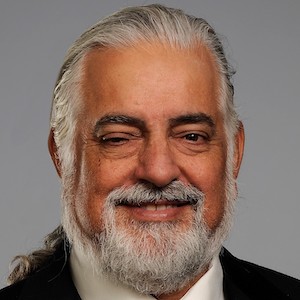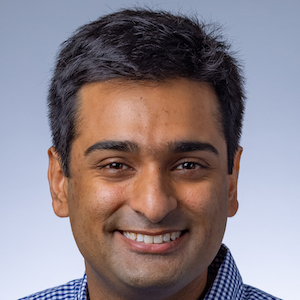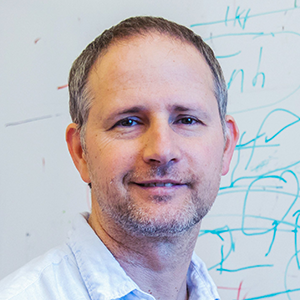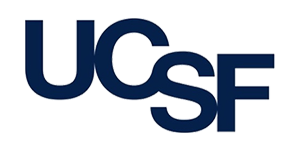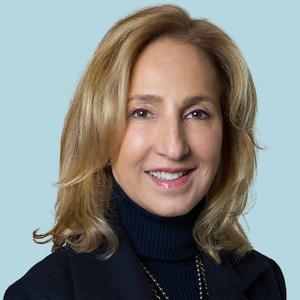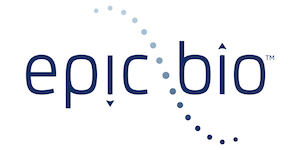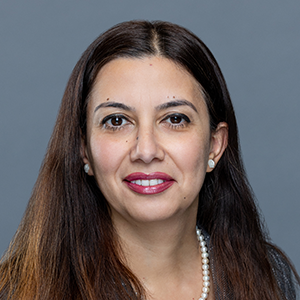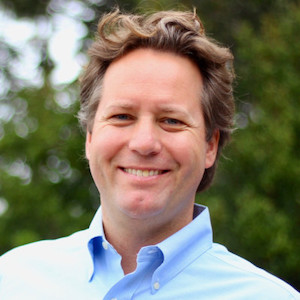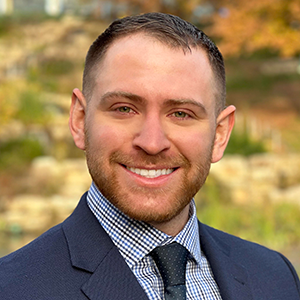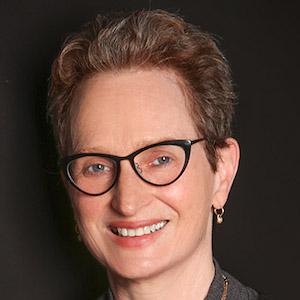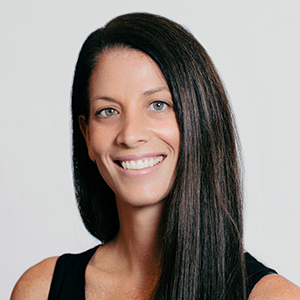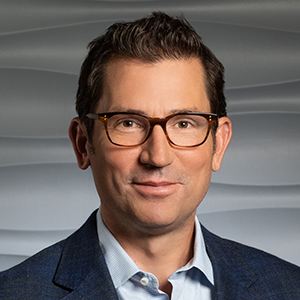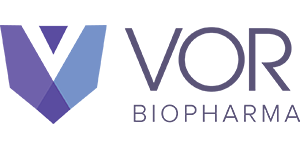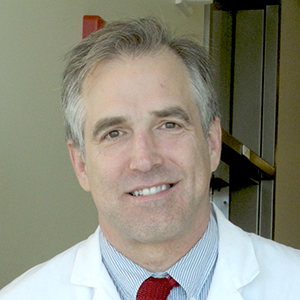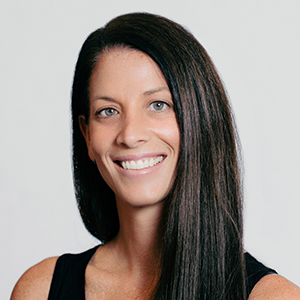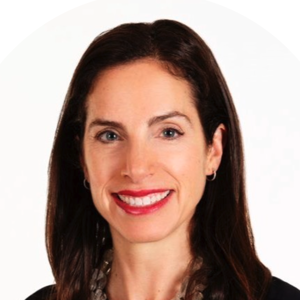Track Co-Chairs:
Yael Weiss, Mahzi
Peter Marks, FDA
- Welcome and Opening by Track Chairs: Yael Weiss, Mahzi
- PMWC 2023 Luminary Award Ceremony
- Allyson Berent, Angelman Foundation
- Terry Pirovolakis, CureSPG50 - From Bench to Bedside - Biomarkers, Natural History Studies, Animal Models (PANEL)
Chair: Peter Marks, FDA (Allyson Berent, FAST)
- Emil Kakkis, Ultragenyx
- Alysson Muotri, UCSD
- Nasha Fitter, Invitae - Commercialization - Moving from Rare to Common (PANEL)
Chair: Matthew Patterson, Vor Bio
- Shankar Ramaswamy, Kriya
- Rahul Singhvi, Resilience
- Sarah Glass, Ultragenyx
- Andrew Lo, MIT
- Mark Harrison, University of British Colombia - Future Modalities (PANEL)
Chair: Shannon Muir, CIAPM
- Nadav Ahituv, UCSF
- Amber Salzman, Epic Bio
- Ben Oakes, Scribe Therapeutics - PMWC NCI Showcase
- Michael M. Binkley, OpenCell
- Cellular Rejuvenation Programming
- Hana El-Samad, UCSF - Bioethics & Ethical Implications in Cell and Gene Therapies
- Hank Greely, Stanford
- Patient Driven Therapies: The Challenges and Successes (PANEL)
Chair: Yael Weiss, Mahzi
- Terry Pirovolakis, CureSPG50
- Allyson Berent, Angelman Foundation
- PMWC Showcase - Peter Marinkovich, Stanford
Session Chair Profile
Biography
Dr. Muir codirects the California Initiative to Advance Precision Medicine and heads the Initiatives efforts to address cancer disparities and depression. She previously served as the Director of Research Proposal Development Services at the UC San Diego Office of Research Affairs, and as a Senior Program Associate and Science and Technology Policy Fellow in the Senate Health Committee for the California Council on Science and Technology.
Session Chair Profile
Biography
Yael Weiss Is currently CEO of Mahzi Therapeutics, a company focused on the development of therapies for ultra-rare genetic neurodevelopmental disorders. Mahzi works closely with patient foundations to support their journey towards drug development and bring programs into Mahzi once pre-clinical proof of concept is established.
Yael completed her MD at Hadassah Medical School at the Hebrew University in Jerusalem and her PhD at the Weizmann Institute of Science in Rehovot, Israel. She has over 20 years of industry experience in medical/clinical and business development roles at Genzyme, Merck and Ultragenyx.
Yael is a member of the NIH driven Bespoke Gene Therapy (BCTG) consortium, ASGCT translational committee, N=1 collaborative and is a 2022 Termeer Fellow. Board member/advisor to ADNP and FOXG1 foundations.
Session Chair Profile
Biography
Peter Marks received his graduate degree in cell and molecular biology and his medical degree at New York University and completed Internal Medicine residency and Hematology/Medical Oncology training at Brigham and Women’s Hospital in Boston. He has worked in academic settings teaching and caring for patients and in industry on drug development. He joined the FDA in 2012 as Deputy Center Director for CBER and became Center Director in 2016.
Speaker Profile
Biography
Peter Marks received his graduate degree in cell and molecular biology and his medical degree at New York University and completed Internal Medicine residency and Hematology/Medical Oncology training at Brigham and Women’s Hospital in Boston. He has worked in academic settings teaching and caring for patients and in industry on drug development. He joined the FDA in 2012 as Deputy Center Director for CBER and became Center Director in 2016.
Talk
Facilitating development of gene therapy
Speaker Profile
Biography
Henry T. (Hank) Greely specializes in ethical, legal, and social issues arising from the biosciences. He is a founder and a past President of the International Neuroethics Society; chairs the California Advisory Committee on Human Stem Cell Research; chairs the Ethical, Legal, and Social Issues Committee of the Earth BioGenome Project; and serves on the NIH BRAIN Initiative’s Multi-Council Working Group while co-chairing the Initiative’s Neuroethics Work Group. He is the author of THE END OF SEX AND THE FUTURE OF HUMAN REPRODUCTION (Harv. Univ. Press 2016) and CRISPR PEOPLE: THE SCIENCE AND ETHICS OF EDITING HUMANS (MIT Press 2021). Greely graduated from Stanford in 1974 and Yale Law School in 1977. He clerked for Judge John Minor Wisdom of the Fifth Circuit Court of Appeals and Justice Potter Stewart, then served in the Departments of Defense and Energy in the Carter Administration. He joined the Stanford faculty in 1985.
Speaker Profile
Biography
Mark Harrison is an Associate Professor with the University of British Columbia’s Faculty of Pharmaceutical Sciences and leads a health economics program within the Collaboration for Outcomes Research and Evaluation (CORE) group. His program of research considers patient-physician decision-making, understanding the role of preferences in treatment decisions, and evaluating the impact of policy interventions on patient and health care system outcomes. Increasingly Mark is looking to study the access to health care of marginalized populations and the relationship between health/health care and the environment.
Speaker Profile
Biography
Rahul is a global leader in the Life Sciences industry. Most recently, he was an Operating Partner at Flagship Pioneering, where he was responsible for founding and operating companies launched from Flagship’s innovation foundry, Flagship labs. Before joining Flagship, Rahul was the Chief Operating Officer of Takeda’s Vaccine Business Unit where he was responsible for worldwide vaccine CMC and manufacturing operations. Before Takeda, Rahul was President and CEO of Novavax, Inc. where he transformed the company from a specialty pharmaceutical business to a vaccine development company. Rahul’s career began at Merck & Co in 1994, where he held several positions in R&D and manufacturing. Rahul serves on the Executive Advisory Board of the Leonard Davis Institute of Health Economics at the University of Pennsylvania and on the Scientific Advisory Board of the anti-microbial resistance research group at the Singapore MIT Advance Research and Technology program.
Speaker Profile
Biography
Dr. Allyson Berent is a veterinary clinical trialist and interventional endoscopist, while serving as the Chief Science Officer at the Foundation for Angelman Syndrome (AS) Therapeutics (FAST) and the Co-Director of the Angelman Syndrome Biomarker and Outcome Measure Consortium (ABOM). She also serves as the Chief Development Officer for Mahzi Therapeutics. Allyson was the co-founder of GeneTx Biotherapeutics, a company started out of FAST to advance a novel antisense olignonucleotide for the treatment of Angelman syndrome (AS), where she served at the Chief Operating Officer prior to its acquisition by Ultragenyx Pharmaceutical in 2022. After her daughter, Quincy was diagnosed with this rare neurogenetic disorder at the age of five and a half months, Dr. Berent embarked on a herculean effort through FAST to find a treatment. Backed with a medical education and a scientific understanding, while propelled by hope and passion and an incredible scientific team, she felt deeply that a treatment for this condition was possible, despite there being no approved therapeutics. Through the foundations investment in the discovery of numerous therapeutic platforms with academic research groups one program at Texas A&M University discovered a unique genetic region that could be exploited, essentially turning on a silent copy of the gene that is otherwise missing in the neurons of patients with AS. Through her personal determination, GeneTx Biotherapeutics completed the US FDA’s Investigational New Drug (IND) program in incredible time. The first exploratory in vivo studies through to the final in vivo good laboratory practice (GLP) toxicity studies took exactly 13 months, completing an incredibly robust IND package for FIH application. Dr. Berent now consults with and supports various rare disease organizations and companies advancing disease modifying, cell and gene therapies for Angelman syndrome and other neurodevelopmental disorders and is changing the landscape for neurodevelopmental disorders.
Speaker Profile
Biography
Dr. Los healthcare-related research interests include: new financial engineering tools and business models for drug and device development and healthcare delivery; statistical methods for incorporating patient preferences into the drug approval process; predicting clinical trial outcomes via machine learning techniques; and novel funding and reimbursement models for creating a robust gene therapy ecosystem. He is a co-founder and director of BridgeBio Pharma, a director of AbCellera, Atomwise, and Roivant Sciences, a co-founder and chairman of QLS Advisors, and a member of the advisory boards of NCATS and the American Cancer Society’s BrightEdge Impact Fund.
Speaker Profile
Biography
Terry Pirovolakis is a rare disease crusader and the father of Michael, who has spastic paraplegia type 50 (SPG50), a slow progressing neurodegenerative disorder. Mr. Pirovolakis’ fight to find a cure for his son could also transform the way that rare diseases are treated. Shortly after Michael’s diagnosis, Terry began researching, reading scientific jounals and meeting with gene therapy expert. A month later he signed a contract to start a gene therapy program. It took over a dozen research institutions and laboratories working throughout the globe to develop a treatment for Michael. Then, last December Health Canada formally granted regulatory approval for the clinical treatment that would, hopefully, save the life of Michael and all those affected by SPG50. Mr. Pirovolakis was so moved by this ordeal that he wants to change the way rare diseases are approached at the national level. He's hosting free monthly gene therapy courses (Genes 101, Genes 103, and Genes 103) to help other families advance their own discovery programs.
Talk
Journey To Cure Michael
I will take the audience through our families journey to cure my son Michael of an ultra-rare disease called SPG50.
Speaker Profile
Biography
Dr. Muotri earned a BSc in Biological Sciences from the State University of Campinas in 1995 and a Ph.D. in Genetics in 2001 from the University of Sao Paulo in Brazil. He moved to the Salk Institute as Pew Latin America Fellow in 2002 for a postdoctoral training in the fields of neuroscience and stem cell biology. He has been a Professor at the School of Medicine, University of California in San Diego since late 2008. His research focuses on modeling neurological diseases, such as Autism Spectrum Disorders, using human induced pluripotent stem cells and brain organoids. He has received several awards, including the prestigious NIH Director’s New Innovator Award, NARSAD, Emerald Foundation Young Investigator Award, Surugadai Award from Tokyo University, Rock Star of Innovation from CONNECT, NIH EUREKA Award, among others.
Speaker Profile
Biography
Nasha Fitter is a leader in the rare disease space through her work on utilizing real world evidence to accelerate treatments. She is also the mother of a child with the rare neurological condition, FOXG1 Syndrome, and co-founded and leads the FOXG1 Research Foundation. Nasha serves on the board for the ACMG Foundation for Genetic and Genomic Medicine and has an MBA from the Harvard Business School.
Speaker Profile
Biography
A medical geneticist by training, Dr. Kakkis is a pioneer in the development and commercialization of treatments for rare diseases. He is founder and CEO at Ultragenyx, a biopharmaceutical company developing novel products for the treatment of rare and ultra-rare diseases. The company has three approved therapies and holds ex-US rights to a fourth approved product, and a deep pipeline of potential treatments across a variety of therapeutic modalities including gene therapy, mRNA therapy, biologics, and small molecule. Before founding Ultragenyx in 2010, Dr. Kakkis guided and contributed to the development of multiple approved rare disease products as chief medical officer at BioMarin Pharmaceutical. Dr. Kakkis also founded and serves on the Board of EveryLife Foundation for Rare Diseases, a non-profit dedicated to accelerating innovation for rare diseases. Dr. Kakkis has been recognized for his leadership by Biotechnology Innovation Organization (BIO), the National MPS Society, WORLDSymposium, and California Life Sciences.
Speaker Profile
Biography
Dr. Ramaswamy was part of the early foundational team at Roivant Sciences, where he was responsible for helping to identify and evaluate assets across therapeutic areas and launch its first public subsidiary company. He went on to be the Chief Business Officer of Axovant Gene Therapies. Dr. Ramaswamy received his MD from Brown University and his undergraduate degree in economics from Harvard University.
Speaker Profile
Biography
Nadav Ahituv is a Professor in the Department of Bioengineering and Therapeutic Sciences and the Interim Director of the Institute for Human Genetics at the University of California, San Francisco. He received his PhD in human genetics from Tel-Aviv University working on hereditary hearing loss. He then did his postdoc, specializing in functional genomics, in the Lawrence Berkeley National Laboratory and the DOE Joint Genome Institute. His current work is focused on identifying gene regulatory elements and linking nucleotide variation within them to various phenotypes including morphological differences between species, drug response and human disease. His lab was one of the co-developers of massively parallel reporter assays (MPRAs) that allow for high-throughput functional characterization of gene regulatory elements and pioneered the use of gene regulatory elements as therapeutic targets. Finally, the lab also utilizes short DNA sequences for diagnostic purposes.
Speaker Profile
Biography
Dr. Salzman is a leader with more than 30 years of experience in the pharmaceuticals industry. She began her career at GlaxoSmithKline (GSK), and as a member of the research and development executive team she was responsible for overseeing global clinical trials with over 30,000 enrolled patients. Following her time at GSK, Dr. Salzman served as the CEO of Cardiokine and saw the successful sale of the company. She then co-founded Annapurna, SAS, where she served as president and CEO before its merger with Avalanche Biotechnologies to become Adverum Biotechnologies. After serving as President and CEO of Adverum, she served as president and CEO of Ohana Biosciences, pioneering the industry’s first sperm biology platform. She then joined Epic Bio as CEO, where the company leverages the power of CRISPR to modulate gene expression and develop much needed therapies.
Dr. Salzman serves on several Boards and leads the Stop ALD Foundation.
Speaker Profile
Biography
Dr. El-Samad’s research group seeks to deliver insights into biological feedback control, unraveling evolutionary successful principles of feedback strategies that are most appropriate for the biological substrate and achieving understanding at the right depth and granularity for forward engineering them with predictable outcomes. A major current focus of her research is to enable measurement of feedback in living cells, synthetic technologies to program cellular function, and theoretical frameworks to quantify biological homeostasis and resilience. Her goal at Altos labs is to rationally reprogram cells to a state of health and resilience.
Talk
Programming Health
In this talk, we discuss how cellular therapies can benefit from precise and programmable control. Through this lens, we also discuss how the ambitious future of this field relies on a diverse workforce powering equitable and ethically informed therapeutical advances.
Speaker Profile
Biography
Speaker Profile
Biography
Michael is an engineer and entrepreneur with over a decade of experience developing microfluidic and ultrasound devices for life sciences applications. Serving as Director of Engineering, he spearheads the company’s effort to scale the POROS platform for gene delivery in hard-to-transfect cell lines to realize practical allogenic CAR-T therapies and to optimize current nanomaterial delivery methods. Prior to joining OpenCell Technologies, he received his Ph.D. in Mechanical Engineering from Washington University in St. Louis while creating innovative solutions for cancer detection, cell isolation, and in vitro biomimicry—publishing 30+ peer-reviewed manuscripts and multiple patents. His inventions range from the use of acoustics to manipulate cells, the synthesis of antibody-drug conjugates in microfluidic channels, and methods for monitoring micro-bioelectrochemical cell devices. He is committed to translating his research experience from the bench to tangible global healthcare solutions.
Speaker Profile
Biography
Yael Weiss Is currently CEO of Mahzi Therapeutics, a company focused on the development of therapies for ultra-rare genetic neurodevelopmental disorders. Mahzi works closely with patient foundations to support their journey towards drug development and bring programs into Mahzi once pre-clinical proof of concept is established.Yael completed her MD at Hadassah Medical School at the Hebrew University in Jerusalem and her PhD at the Weizmann Institute of Science in Rehovot, Israel. She has over 20 years of industry experience in medical/clinical and business development roles at Genzyme, Merck and Ultragenyx.Yael is a member of the NIH driven Bespoke Gene Therapy (BCTG) consortium, ASGCT translational committee, N1 collaborative and is a 2022 Termeer Fellow. Board member/advisor to ADNP and FOXG1 foundations.
Speaker Profile
Biography
Terry Pirovolakis is a rare disease crusader and the father of Michael, who has spastic paraplegia type 50 (SPG50), a slow progressing neurodegenerative disorder. Mr. Pirovolakis fight to find a cure for his son could also transform the way that rare diseases are treated. Shortly after Michaels diagnosis, Terry began researching, reading scientific jounals and meeting with gene therapy expert. A month later he signed a contract to start a gene therapy program. It took over a dozen research institutions and laboratories working throughout the globe to develop a treatment for Michael. Then, last December Health Canada formally granted regulatory approval for the clinical treatment that would, hopefully, save the life of Michael and all those affected by SPG50. Mr. Pirovolakis was so moved by this ordeal that he wants to change the way rare diseases are approached at the national level. He's hosting free monthly gene therapy courses (Genes 101, Genes 103, and Genes 103) to help other families advance their own discovery programs.
Speaker Profile
Biography
Dr. Allyson Berent is a veterinary clinical trialist and interventional endoscopist, while serving as the Chief Science Officer at the Foundation for Angelman Syndrome (AS) Therapeutics (FAST) and the Co-Director of the Angelman Syndrome Biomarker and Outcome Measure Consortium (ABOM). She also serves as the Chief Development Officer for Mahzi Therapeutics. Allyson was the co-founder of GeneTx Biotherapeutics, a company started out of FAST to advance a novel antisense olignonucleotide for the treatment of Angelman syndrome (AS), where she served at the Chief Operating Officer prior to its acquisition by Ultragenyx Pharmaceutical in 2022. After her daughter, Quincy was diagnosed with this rare neurogenetic disorder at the age of five and a half months, Dr. Berent embarked on a herculean effort through FAST to find a treatment. Backed with a medical education and a scientific understanding, while propelled by hope and passion and an incredible scientific team, she felt deeply that a treatment for this condition was possible, despite there being no approved therapeutics. Through the foundations investment in the discovery of numerous therapeutic platforms with academic research groups one program at Texas A&M University discovered a unique genetic region that could be exploited, essentially turning on a silent copy of the gene that is otherwise missing in the neurons of patients with AS. Through her personal determination, GeneTx Biotherapeutics completed the US FDA’s Investigational New Drug (IND) program in incredible time. The first exploratory in vivo studies through to the final in vivo good laboratory practice (GLP) toxicity studies took exactly 13 months, completing an incredibly robust IND package for FIH application. Dr. Berent now consults with and supports various rare disease organizations and companies advancing disease modifying, cell and gene therapies for Angelman syndrome and other neurodevelopmental disorders and is changing the landscape for neurodevelopmental disorders.
Speaker Profile
Biography
Matt Patterson is Chairman of the Board of Directors of Vor Biopharma, Inc., Executive Chairman of the Board of Directors of Remix Therapeutics, Inc. and a member of the Board of Directors at Homology Medicines, Inc. Previously, he co-founded Audentes Therapeutics and served as Chief Executive Officer from the Company’s inception in November 2012 until its acquisition by Astellas Pharma Inc. in January 2020. He was also Chairman of the Board of Directors and formerly served as President until May 2018. Previously, Matt worked for Genzyme Corporation, BioMarin Pharmaceutical, and Amicus Therapeutics. Prior to Audentes he was an Entrepreneur-In-Residence with OrbiMed. He also served as a member of the Board of Directors of the Alliance for Regenerative Medicine (ARM), the international advocacy organization representing the gene and cell therapy and broader regenerative medicine sector, from 2015-2021, and was Chairman in 2019 and 2020.
Speaker Profile
Biography
Dr. Marinkovich received his dermatology training at Oregon Health Sciences University, and his research training in the laboratory of Dr. Robert Burgeson, who discovered type VII collagen. Dr. Marinkovich's early work led to the characterization of several key basement membrane components involved in epidermolysis bullosa, including laminin-332 and laminin-311. He later joined the faculty at Stanford University and served as an attending in the National EB Registry at Stanford University. He currently directs the Stanford Blistering Disease Clinic. Dr. Marinkovich’s laboratory has had a longstanding focus on the development of molecular therapy for various subtypes of epidermolysis bullosa.
Speaker Profile
Biography
Dr. Allyson Berent is a veterinary clinical trialist and interventional endoscopist, while serving as the Chief Science Officer at the Foundation for Angelman Syndrome (AS) Therapeutics (FAST) and the CoDirector of the Angelman Syndrome Biomarker and Outcome Measure Consortium (ABOM). She also serves as the Chief Development Officer for Mahzi Therapeutics. Allyson was the cofounder of GeneTx Biotherapeutics, a company started out of FAST to advance a novel antisense olignonucleotide for the treatment of Angelman syndrome (AS), where she served at the Chief Operating Officer prior to its acquisition by Ultragenyx Pharmaceutical in 2022. After her daughter, Quincy was diagnosed with this rare neurogenetic disorder at the age of five and a half months, Dr. Berent embarked on a herculean effort through FAST to find a treatment. Backed with a medical education and a scientific understanding, while propelled by hope and passion and an incredible scientific team, she felt deeply that a treatment for this condition was possible, despite there being no approved therapeutics. Through the foundations investment in the discovery of numerous therapeutic platforms with academic research groups one program at Texas A&M University discovered a unique genetic region that could be exploited, essentially turning on a silent copy of the gene that is otherwise missing in the neurons of patients with AS. Through her personal determination, GeneTx Biotherapeutics completed the US FDAs Investigational New Drug (IND) program in incredible time. The first exploratory in vivo studies through to the final in vivo good laboratory practice (GLP) toxicity studies took exactly 13 months, completing an incredibly robust IND package for FIH application. Dr. Berent now consults with and supports various rare disease organizations and companies advancing disease modifying, cell and gene therapies for Angelman syndrome and other neurodevelopmental disorders and is changing the landscape for neurodevelopmental disorders.
Speaker Profile
Biography







